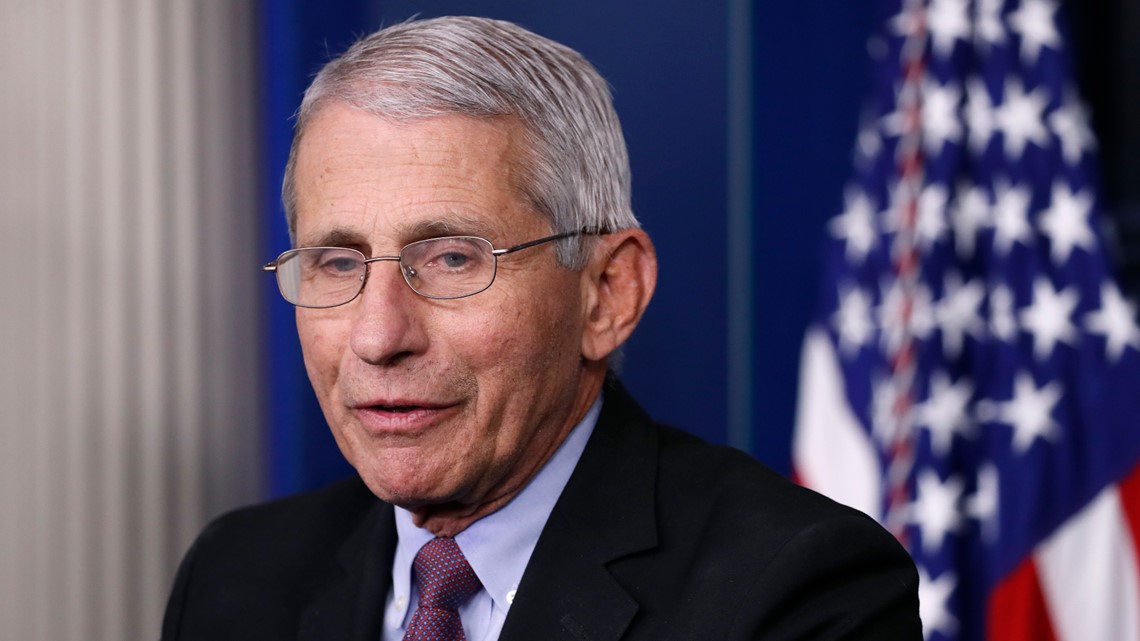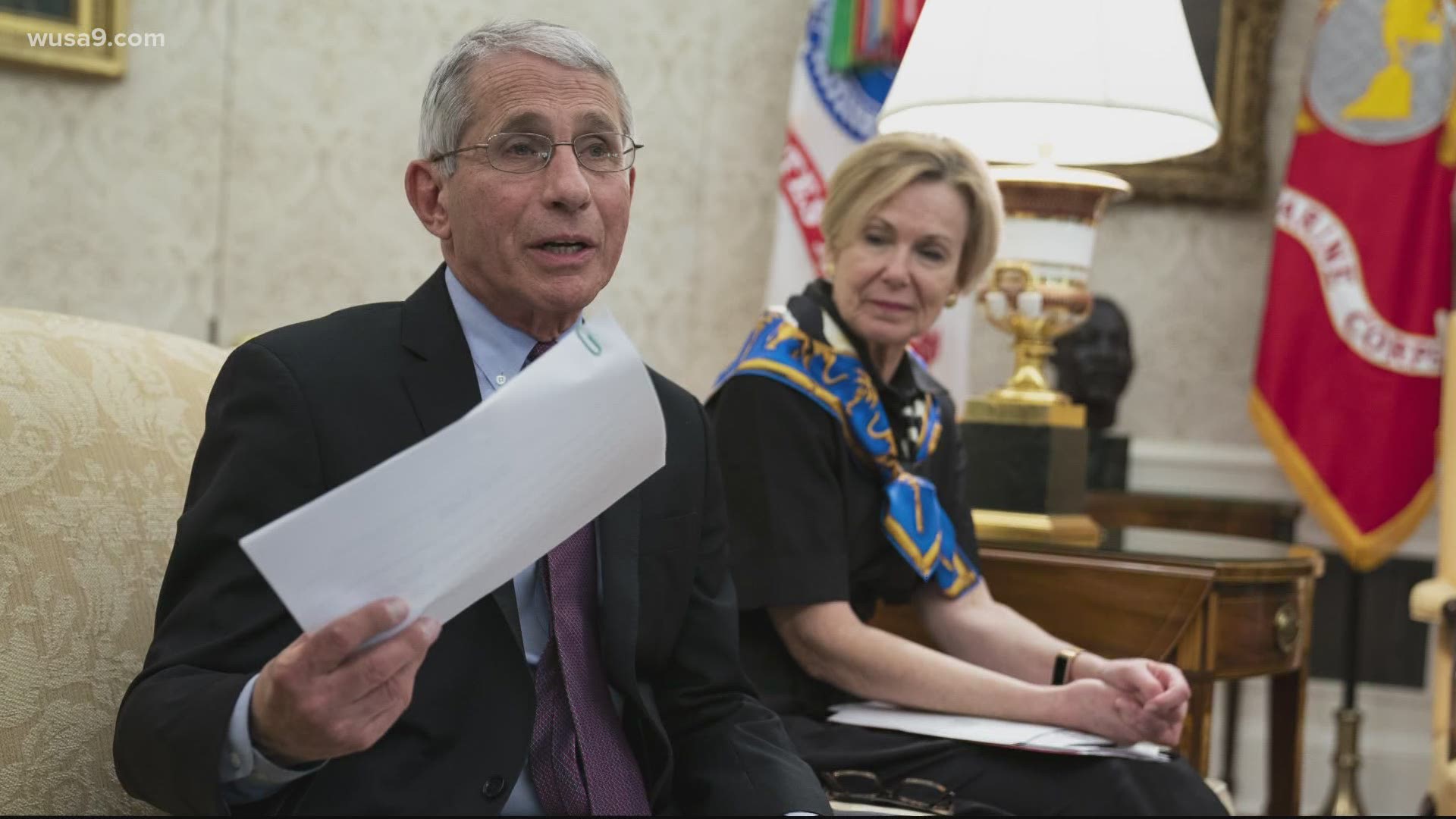The nation's leading infectious disease expert says that keeping the country closed for too long to fight the coronavirus may cause "irreparable damage." But, Dr. Anthony Fauci says, cities and states must balance that by not reducing social distancing measures too quickly.
"We can't stay locked down for such a considerable period of time that you might do irreparable damage and have unintended consequences including consequences for health," Fauci, a member of the White House coronavirus task force, told CNBC on Friday. "And it's for that reason why the guidelines are being put forth so that the states and the cities can start to reenter and reopen."
The stay-at-home orders enacted to stop the spread of the virus have led to nearly 39 million people filing for unemployment in the past nine weeks. The unemployment rate in the U.S. is 14.7%, and expected to go higher when the May jobs report is released in two weeks. It's just one of the reasons there is a push to relax stay-at-home policies.
There have been nearly 1.6 million reported cases of COVID-19 in the U.S., according to Johns Hopkins University. That includes nearly 96,000 deaths. Nearly 300,000 have recovered.
Fauci, the director of the National Institute of Allergy and Infectious Diseases, said closing things down was necessary when cases were exploding. He says serious consideration to reopen can begin, but stresses that it must be done cautiously and case by case.
“Now is the time -- depending on where you are and what your situation is -- to begin seriously looking at reopening the economy, reopening the country to try to get back to some degree of normal," Fauci said.
Fauci said he recommends taking precautions if areas are seeing a rise in cases, but are still choosing to open up.
"There are certain things that you can do. The idea about physical separation, about wearing a mask, about not getting involved in crowds. You can still proceed to open, so long as you do those fundamental, baseline things," Fauci said. "But in general, I think most of the country is doing it in a prudent way."
Fauci added that some places might be "jumping over that," and asked them to proceed with caution.
President Donald Trump on Friday labeled churches and other houses of worship as "essential," and called on governors nationwide to let them reopen this weekend even though some areas remain under lockdown. The president threatened to “override” governors who defy him, but it was unclear what authority he has to do so.
On Thursday, Trump said that if there is a second wave of the virus -- something experts say is a possibility as areas reopen, he would not close the country down.
For most people, the coronavirus causes mild or moderate symptoms, such as fever and cough that clear up in two to three weeks. For some, especially older adults and people with existing health problems, it can cause more severe illness, including pneumonia, and death.
An Associated Press-NORC Center for Public Affairs Research poll this week found 83% of Americans are at least somewhat concerned that lifting restrictions in their area will lead to additional infections, with 54% saying they are very or extremely concerned that such steps will result in a spike of COVID-19 cases.
About 8 in 10 Americans say that it's essential to reopening for people to return to self-quarantine if they are exposed to the virus. Roughly 6 in 10 also say having widespread testing for the coronavirus in their area is essential to reestablishing public activities, along with requiring people to keep 6 feet (1.8 meters) apart in most places and to wear face masks when they're near others outside their homes.
While still resolute, support for stay-at-home measures to contain the coronavirus has slipped in the past month — 80% were in favor of stay-at-home orders in April. The new survey found that 69% now favor restricting gatherings to 10 people or fewer, down from 82% in April.
The Associated Press contributed to this report.




